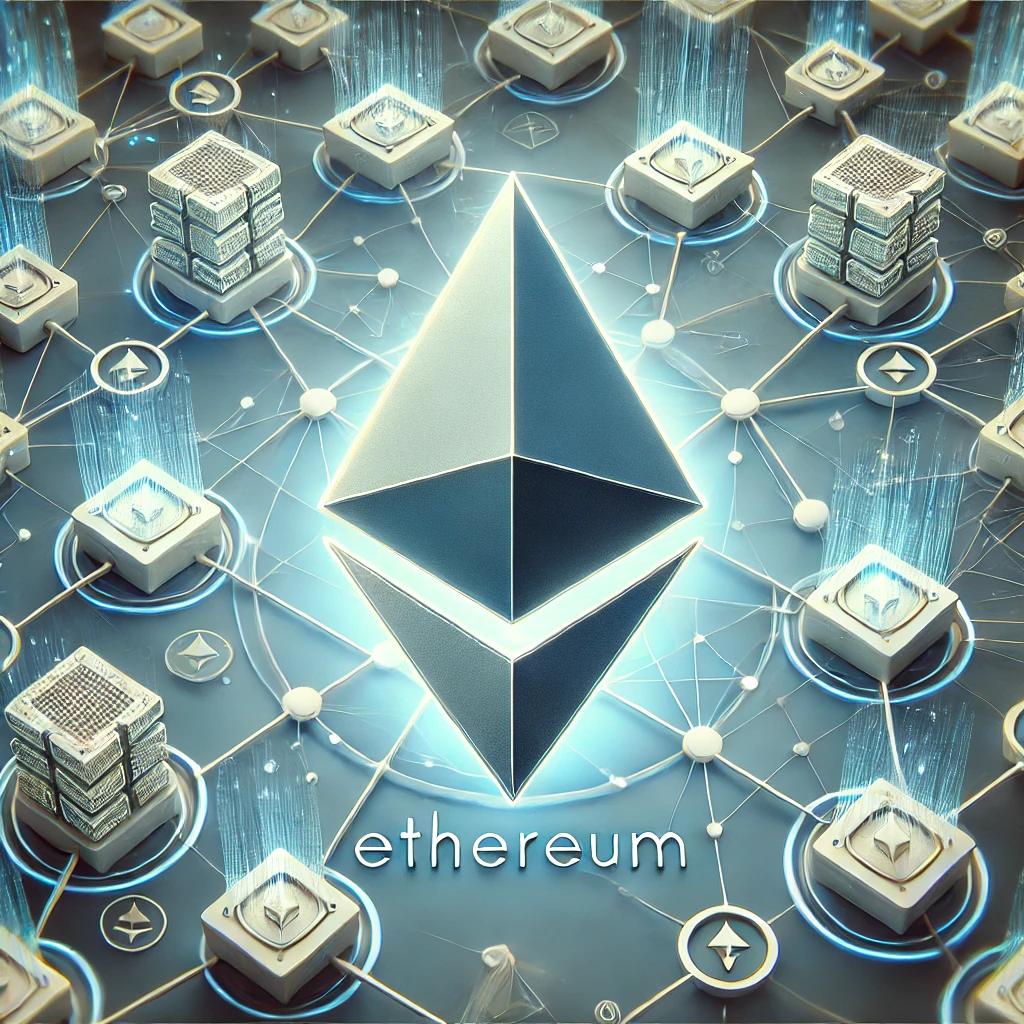Pros, Cons, and Everything You Need to Know
Introduction to Ethereum
Ethereum is often mentioned alongside Bitcoin as one of the most influential technologies in the world of blockchain. But while Bitcoin primarily serves as a decentralized digital currency, Ethereum expands the scope of blockchain technology by enabling decentralized applications (dApps), smart contracts, and much more. In this post, we'll dive deep into Ethereum, discussing how it works, its benefits, drawbacks, and its future prospects.
What is Ethereum?
Ethereum is an open-source blockchain platform that allows developers to build and deploy decentralized applications. Proposed by Vitalik Buterin in late 2013 and launched in 2015, Ethereum has become the backbone of thousands of decentralized projects in the world of blockchain.
Unlike Bitcoin, which was designed primarily as a digital currency, Eth was created to allow developers to build decentralized solutions that eliminate the need for intermediaries. This is made possible by smart contracts — self-executing contracts with the terms of the agreement directly written into code.
How Does Eth Work?
Eth uses a decentralized network of nodes, much like Bitcoin. However, the Ethereum blockchain allows for more flexibility and functionality through its programming language, Solidity. Developers use Solidity to create smart contracts, which are then executed automatically when predefined conditions are met.
Ethereum operates on a consensus mechanism. Initially, it used Proof of Work (PoW), like Bitcoin. However, Ethereumm has transitioned to a Proof of Stake (PoS) model through the much-anticipated Ethereum 2.0 upgrade, making it more energy-efficient and scalable.
Key Features of Eth
- Smart Contracts
Smart contracts are the defining feature of Ethereume. They eliminate the need for intermediaries like lawyers or banks, automating agreements between parties. - Decentralized Applications (dApps)
Developers can build decentralized apps on the Ethereum platform. These applications run on the blockchain, ensuring that they are censorship-resistant and tamper-proof. - Decentralized Finance (DeFi)
One of the most popular use cases for Ethereum is in DeFi. These decentralized finance applications allow users to access financial services like lending, borrowing, and trading without the need for centralized institutions. - Non-Fungible Tokens (NFTs)
Ethereum also powers the NFT space, enabling the creation of unique digital assets that can represent ownership of anything from art to music.
Pros
- First-Mover Advantage
Ethereum was the first blockchain to introduce smart contracts and a decentralized app platform, giving it a significant lead in development and adoption. - Active Developer Community
Ethereum has one of the largest developer communities in the blockchain space. This means continuous improvements, updates, and new decentralized applications being created. - Eth 2.0 and Scalability
The Ethereum 2.0 upgrade brings significant improvements to the network’s speed, efficiency, and scalability. The switch from Proof of Work to Proof of Stake reduces energy consumption by over 99%, making it more environmentally friendly. - Wide Range of Applications
From DeFi to NFTs and beyond, versatility allows for a wide range of use cases, giving it a substantial advantage over many other blockchains.
Cons
- High Gas Fees
One of Ethereum’s biggest criticisms has been its high gas fees. Gas fees are the costs users pay to process transactions on the network. During times of high network demand, these fees can skyrocket, making Ethereum expensive for average users. - Scalability Issues (Pre-Ethereum 2.0)
Before Ethereum 2.0, the network struggled with scalability. The network could only handle about 15 transactions per second, leading to congestion and long transaction times. While Ethereum 2.0 is set to solve this issue, the transition is still in progress. - Complexity
While Ethereum’s flexibility is one of its strengths, it also makes the network more complex to use and understand. Building smart contracts requires specific programming skills, and even for regular users, interacting with the Ethereum network can be more challenging compared to simpler blockchains.
Ethereum vs. Competitors
Newer blockchains like Cardano, Polkadot, and Solana aim to improve on Ethereum's limitations, particularly in scalability and transaction fees. However, Ethereum’s first-mover advantage and massive ecosystem make it difficult for newer platforms to catch up quickly.
Decentralization
One of Ethereum's most significant benefits is decentralization. By removing intermediaries and relying on code to execute contracts, Ethereum provides a transparent and trustless system where no single entity has control over the network. This ensures that dApps and smart contracts run exactly as programmed without any possibility of censorship or interference.
The Future
Ethereum's future looks promising, especially with the 2.0 upgrade. With its move to Proof of Stake and the introduction of shard chains (to improve scalability), positioning itself as the go-to platform for blockchain innovation. Additionally, its role in DeFi and NFTs continues to expand, with more projects being built on Ethereeum than any other blockchain.
As Etthereum evolves, it will face new challenges and competitors, but its commitment to decentralization, innovation, and community support suggests that Ethereum will remain a key player in the blockchain space for years to come.
Conclusion
Ethereum has revolutionized the blockchain landscape by introducing smart contracts, decentralized apps, and decentralized finance solutions. While it faces challenges like high gas fees and competition from newer blockchains, its ecosystem and ongoing development make it a critical player in the future of blockchain technology.
Whether you’re an investor, developer, or someone simply interested in the technology, understanding Eth is crucial to understanding the future of decentralized applications and digital assets.



